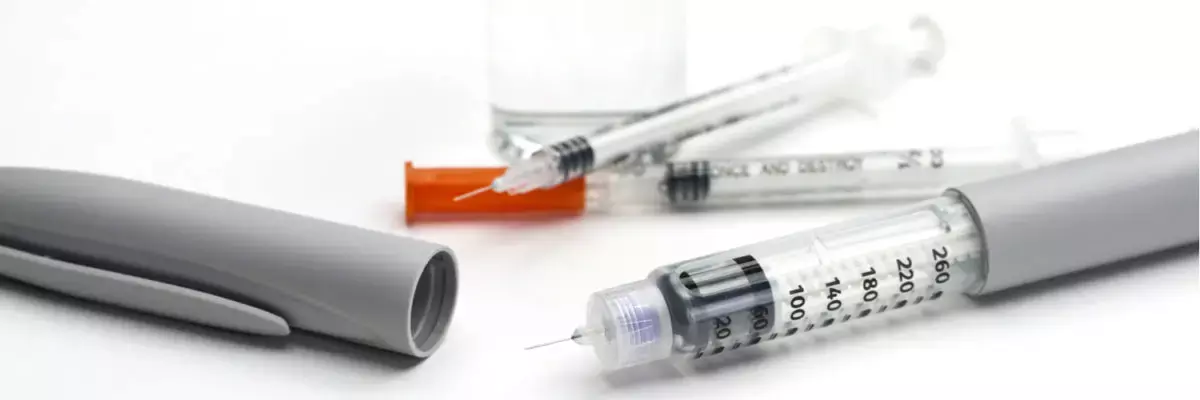- Home
- Medical news & Guidelines
- Anesthesiology
- Cardiology and CTVS
- Critical Care
- Dentistry
- Dermatology
- Diabetes and Endocrinology
- ENT
- Gastroenterology
- Medicine
- Nephrology
- Neurology
- Obstretics-Gynaecology
- Oncology
- Ophthalmology
- Orthopaedics
- Pediatrics-Neonatology
- Psychiatry
- Pulmonology
- Radiology
- Surgery
- Urology
- Laboratory Medicine
- Diet
- Nursing
- Paramedical
- Physiotherapy
- Health news
- Fact Check
- Bone Health Fact Check
- Brain Health Fact Check
- Cancer Related Fact Check
- Child Care Fact Check
- Dental and oral health fact check
- Diabetes and metabolic health fact check
- Diet and Nutrition Fact Check
- Eye and ENT Care Fact Check
- Fitness fact check
- Gut health fact check
- Heart health fact check
- Kidney health fact check
- Medical education fact check
- Men's health fact check
- Respiratory fact check
- Skin and hair care fact check
- Vaccine and Immunization fact check
- Women's health fact check
- AYUSH
- State News
- Andaman and Nicobar Islands
- Andhra Pradesh
- Arunachal Pradesh
- Assam
- Bihar
- Chandigarh
- Chattisgarh
- Dadra and Nagar Haveli
- Daman and Diu
- Delhi
- Goa
- Gujarat
- Haryana
- Himachal Pradesh
- Jammu & Kashmir
- Jharkhand
- Karnataka
- Kerala
- Ladakh
- Lakshadweep
- Madhya Pradesh
- Maharashtra
- Manipur
- Meghalaya
- Mizoram
- Nagaland
- Odisha
- Puducherry
- Punjab
- Rajasthan
- Sikkim
- Tamil Nadu
- Telangana
- Tripura
- Uttar Pradesh
- Uttrakhand
- West Bengal
- Medical Education
- Industry
Insulin degludec as good as high dose insulin glargine in reducing blood sugar in diabetes: Study

Japan: Insulin degludec (IDeg) and insulin glargine 300 U/mL (Gla300) showed similar effects in reducing blood sugar levels in patients with type 1 diabetes and type 2 diabetes switching from other basal insulins, finds a recent study. The findings of the study were published in the Journal of Diabetes Investigation.
Insulin glargine 100 U/mL (Gla100) and insulin detemir (IDet) are first-generation long-acting basal insulin analogs that have been used widely over the past decade due to their stable and longer action than neutral protamine Hagedorn (NPH) insulin. However, some studies have shown that both the forms might require twice-daily injections for improving glycemic control leading to increased insulin doses4 or decreased treatment satisfaction.
IDeg and Gla300 are ultra-long-acting, second-generation basal insulin analogs with a more constant and prolonged pharmacokinetic and pharmacodynamic profile than Gla100 and IDet.
Against the above background, Junko Oya, Diabetes Center, Tokyo Women's Medical University, Tokyo, Japan, and colleagues aimed to evaluate and compare the efficacy of insulin degludec and insulin glargine 300 U/mL 6 months after switching from other basal insulins by assessing the changes in glycated hemoglobin (HbA1c), body mass index (BMI), and insulin doses in patients with type 1 and type 2 diabetes in a real-world clinical setting.
For this purpose, the researchers studied a total of 307 patients with type 1 diabetes and 294 patients with type 2 diabetes with HbA1c >7.0%. Adjusted mean changes in HbA1c, BMI, and insulin doses were compared between IDeg (IDeg group) and Gla300 (Gla300 group) switchers.
Key findings of the study include:
- HbA1c was significantly decreased in both the IDeg and Gla300 groups.
- Adjusted mean changes in HbA1c (approximately −0.3% and −0.5% in type 1 diabetes and type 2 diabetes patients, respectively) and BMI were similar between both groups.
- The mean change in insulin dose was slightly larger for dose reduction in the IDeg group than in the Gla300 group.
- Multivariable logistic regression models showed that the IDeg group was significantly associated with insulin dose reduction after adjusting for basal insulin type, insulin dose, and number of basal insulin injections at baseline and other confounding factors.
"The current study suggested that IDeg and Gla300 have similar effects in reducing HbA1c and gaining BMI after switching from other basal insulins in Japanese patients with type 1 diabetes and type 2 diabetes," wrote the authors. "IDeg selection was associated with insulin dose reduction."
Reference:
The study titled, "Comparative clinical outcomes of insulin degludec and insulin glargine 300 U/mL after switching from other basal insulins in real-world patients with type 1 and type 2 diabetes," is published in the Journal of Diabetes Investigation.
DOI: https://onlinelibrary.wiley.com/doi/10.1111/jdi.13559
Dr Kamal Kant Kohli-MBBS, DTCD- a chest specialist with more than 30 years of practice and a flair for writing clinical articles, Dr Kamal Kant Kohli joined Medical Dialogues as a Chief Editor of Medical News. Besides writing articles, as an editor, he proofreads and verifies all the medical content published on Medical Dialogues including those coming from journals, studies,medical conferences,guidelines etc. Email: drkohli@medicaldialogues.in. Contact no. 011-43720751


